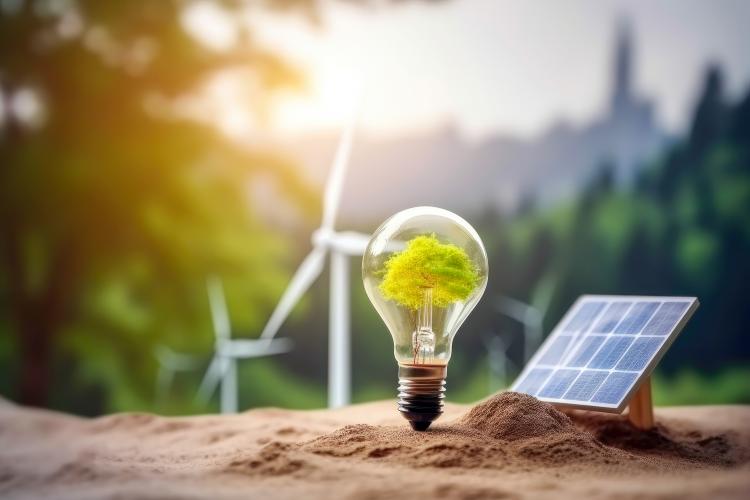
The Department for the Economy (DfE) has a wide range of responsibilities including Economic Policy, Energy, Higher and Further Education, Telecoms and Tourism.

DfE's mission is to develop and implement agile policies and programmes which promote a competitive, sustainable, and inclusive economy through investment in:
Minister’s Economic Vision
On appointment, the Minister for the Economy, Conor Murphy, set out his Economic Vision. The Minister’s Economic Vision Statement sets out four key objectives to tackle the challenges the economy faces – Good Jobs, Promote Regional Balance, Raise Productivity, and Reduce Carbon Emissions.
These objectives align with the aims of the Climate Change Act (Northern Ireland) 2022 and the principles set out in the Department’s Energy Strategy. Together they provide an opportunity to build a competitive, sustainable, and inclusive economy for Northern Ireland.
Further information on the Climate Change Act (Northern Ireland) 2022 and the Department’s Energy Strategy are set out below.
Climate Change Act (Northern Ireland) 2022
A key driver for Northern Ireland government is the Climate Change Act (Northern Ireland) 2022 which sets out the legally binding target of an at least 100% reduction in net zero greenhouse gas emissions by 2050 compared to baseline, along with interim targets including at least 48% reduction in net emissions by 2030.
Energy Strategy
In December 2021, DfE published the Energy Strategy for Northern Ireland – The Path to Net Zero Energy. The strategy sets out five key principles:

By implementing this Path to Net Zero Energy, energy in Northern Ireland will change considerably by 2030. Carbon emissions will have reduced significantly through energy efficiency measures, consumer engagement, changed transport patterns and a system that delivers a much greater proportion of our energy from renewable and lower carbon sources.
The Path to Net Zero Energy. Safe. Affordable. Clean. (economy-ni.gov.uk)
Business and Industrial Decarbonisation
The UK government’s industrial decarbonisation policies play a key role in lowering the emissions of our business and industrial sector. However, as our economy is dominated by small and medium sized enterprises, we need to have our own additional measures to both lower emissions and create economic opportunity.
The Industrial Decarbonisation for Northern Ireland (ID-NI) project led by Invest NI is a good example of a local policy intervention tailored to meet the requirements of our own economy.
The ID-NI project is taking an innovative dual-approach to address carbon reduction in NI, providing businesses with support, tools, and metrics to enable NI industry to increase productivity whilst, at the same time, reducing emissions.
Department for the Economy
Adelaide House 39/49 Adelaide Street Belfast BT2 8FD